Filipino American nurses are part of an overlooked community hit hard by COVID-19
"Even before the pandemic, a lot of our community was already in crisis."
In August, three months after emergency room nurse Erwin Lambrento died from the coronavirus, his wife and daughter finally laid him to rest.
“It’s like he can finally rest in peace,” said Aurora Lambrento, his wife and college sweetheart. “We waited how many months for this? And now, finally, he’s there.”
Erwin Lambrento, a nurse for more than 20 years, had stepped up to care for patients when New York City became the country's epicenter of COVID-19 this past spring. He was working at the hard-hit Elmhurst Hospital Center in Elmhurst, Queens, a neighborhood with a large, densely packed immigrant population.
"Erwin was still going to work and we were telling him, 'Why don't you take a break,'" said Aurora Lambrento. "He said, 'No, are you kidding me? I have a lot of coworkers who are quarantined and have coronavirus."
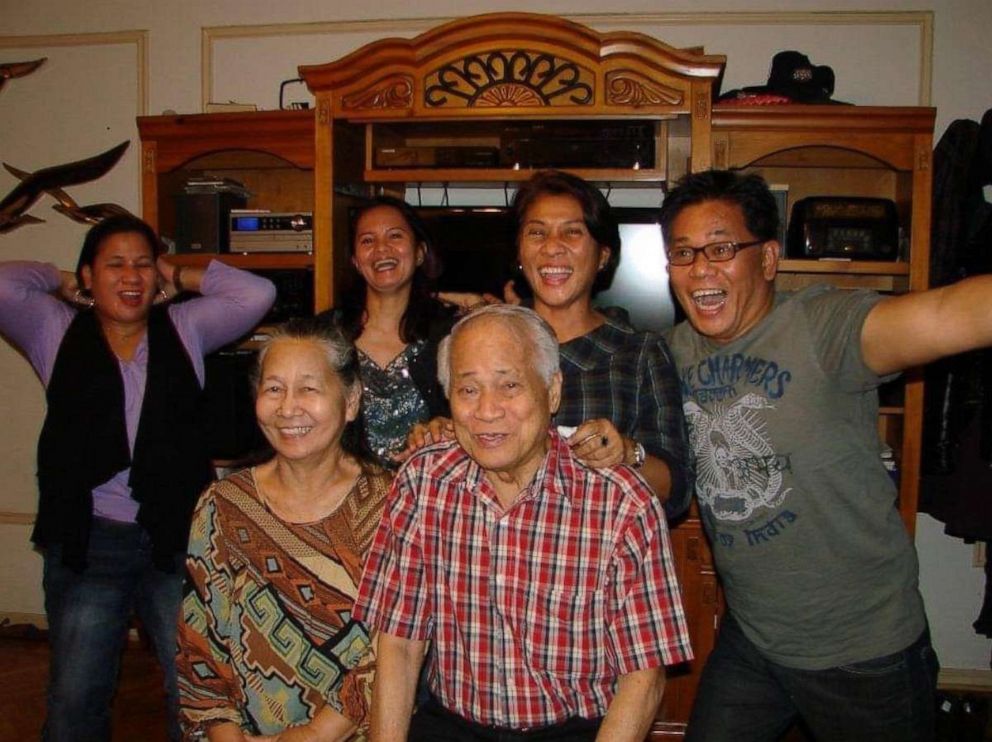
Lambrento was remembered as a husband and father, a lover of music and Christmas and a Filipino American nurse in a socially distant and masked memorial service. The 58-year-old had been a doctor in the Philippines but, after meeting his wife and falling in love, he moved to the United States to follow her and his passion for medicine.
His daughter, Cara Lambrento, laments the profession that he loved and ultimately died doing.
“I’ve kind of gotten a bit disillusioned with the whole ‘health care hero’ word,” said Cara Lambrento. “I’d rather have someone who’s alive than someone who’s a hero.”
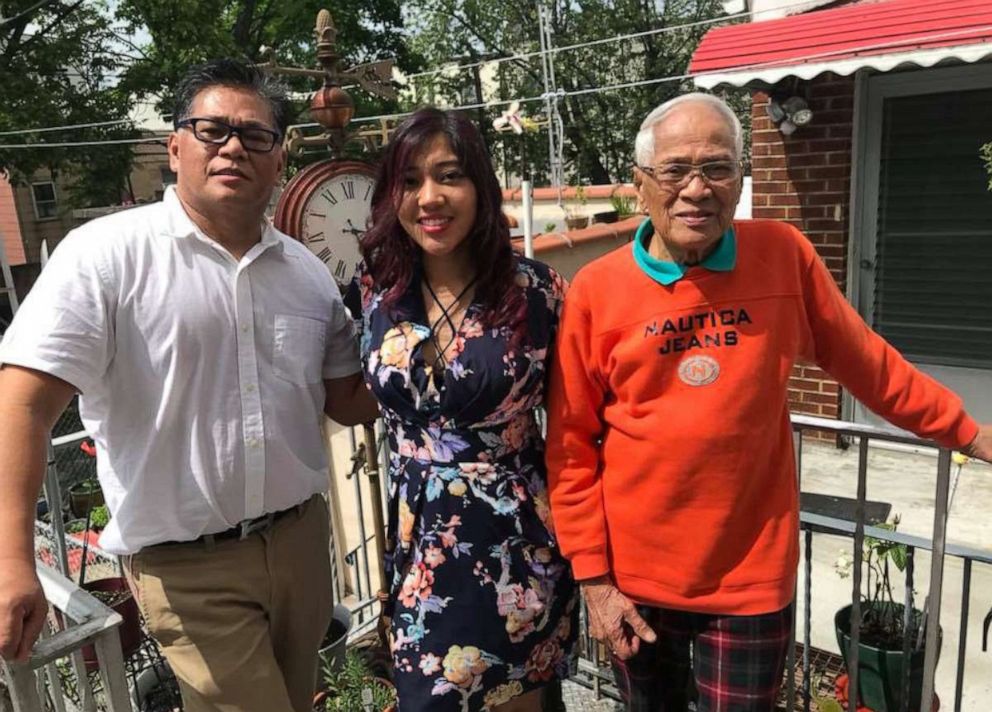
Her father is just one casualty within a vibrant community that has been instrumental in the battle against COVID-19. However, with many Filipino Americans on the frontlines, they've also been impacted particularly hard by the virus.
More than 1,700 health care workers have died from the virus, according to a September report from National Nurses United (NNU), the largest registered nurse union in the country. Of those, 67 of the 213 nurses who'd died were Filipino Americans, making them the largest non-white ethnic group of nurses to die from the virus.
Philippine immigrants alone make up 28% -- the largest share -- of the country's 512,000 immigrant registered nurse population, according to the Migration Policy Institute, a nonpartisan think tank.
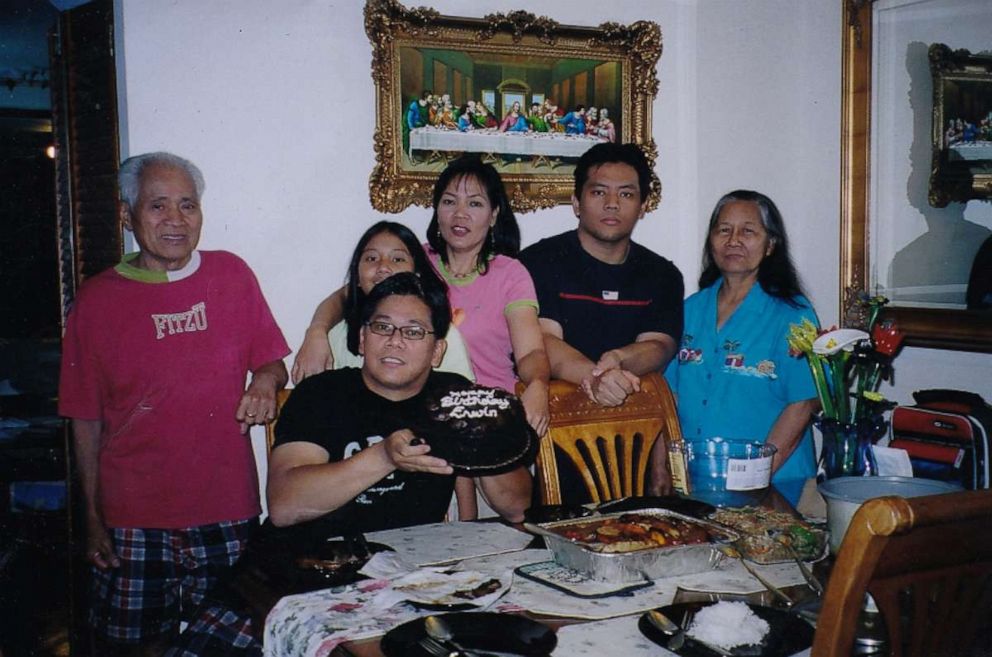
"[For Filipinos], health care is tied to employment," said Adrian De Leon, assistant professor of American studies and ethnicity at the University of Southern California. "That compels Filipino nurses to continue to work, continue to be underpaid [and] continue to be exposed to higher rates of COVID-19 quite intimately because of longer exposure rates."
It's no coincidence that there are so many nurses in the U.S. of Filipino descent. For nearly half a century, starting in 1898, the U.S. had colonized the Philippines. Under U.S. authority, a policy known as "Benevolent Assimilation" led to a pipeline of labor that continues to the modern-day. In the 1960s, when the U.S. suffered a shortage of nurses, Filipino nurses were trained to work in the American health care system and recruited.
“So what ended up happening was you get this sort of ready-made labor force of Filipino [health] care workers,” said De Leon.
Decades later, when the coronavirus arrived in the U.S., Filipino nurses once again found themselves on the frontlines. While so many of them have been praised as heroes, the pandemic's deadly impact on their families and the community has gone largely unmonitored. The NNU report is one of the first to provide some clarity on the deadly toll the pandemic has taken on this overlooked Asian American community.
With its own distinct culture and values, the Filipino lifestyle is centered around compassion and care. These values are in part why Cara Lambrento believes her father, along with other Filipino American health care workers, worked above and beyond their oath to serve and heal.
“Filipinos have a culture that's very family-focused and very caring -- very welcoming, very warm -- and so, I think that kind of sentiment also extends into the hospital where they work," said Cara Lambrento. "They do whatever they can to help ... while at the same time maintaining this attitude of, 'We're going to get this done.'"
This sense of family is so strong within Filipino culture that it’s common to see multiple generations of families living in the same home. This tradition became particularly dangerous with COVID-19 as it increased the possibility of exposing older, more vulnerable family members to the disease.
As the virus spread through New York City, Erwin Lambrento moved his parents to his sister’s home in New Jersey. His loved ones think this move saved their lives.
"He promised them, 'I'll come. I'll come and pick you up as soon as COVID-19 is over,'" said Aurora Lambrento. "That's why his mother couldn't take it because that was the last time they spoke to him. That was it."
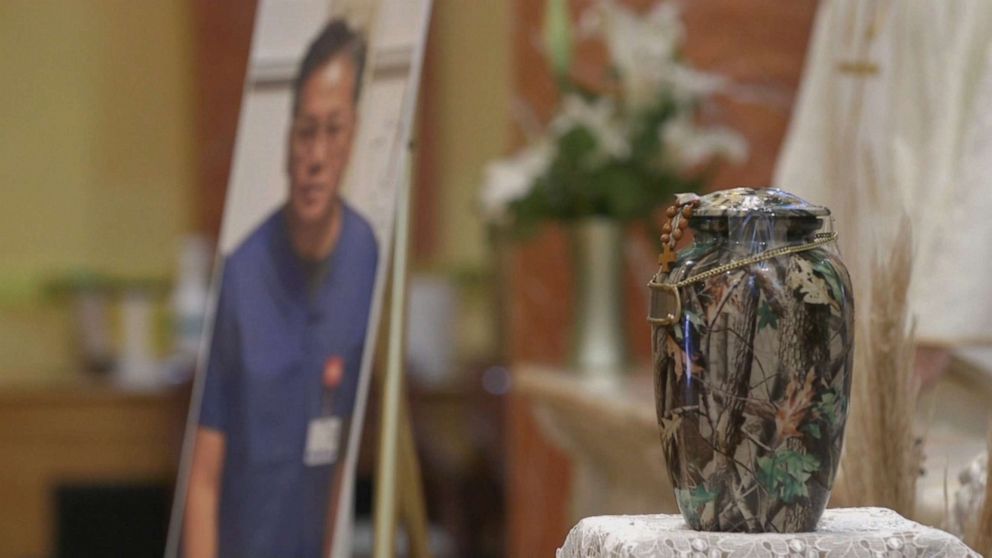
However, experts say it's a luxury to move family members to a different home. Aquilina Soriano Versoza executive director of the Pilipino Workers Center says much of the Filipino community in the U.S. was already struggling before the pandemic began.
“The reality is, even before the pandemic, a lot of our community was already in crisis ... dealing with poverty, dealing with crowded housing conditions and bad working conditions,” said Versoza.
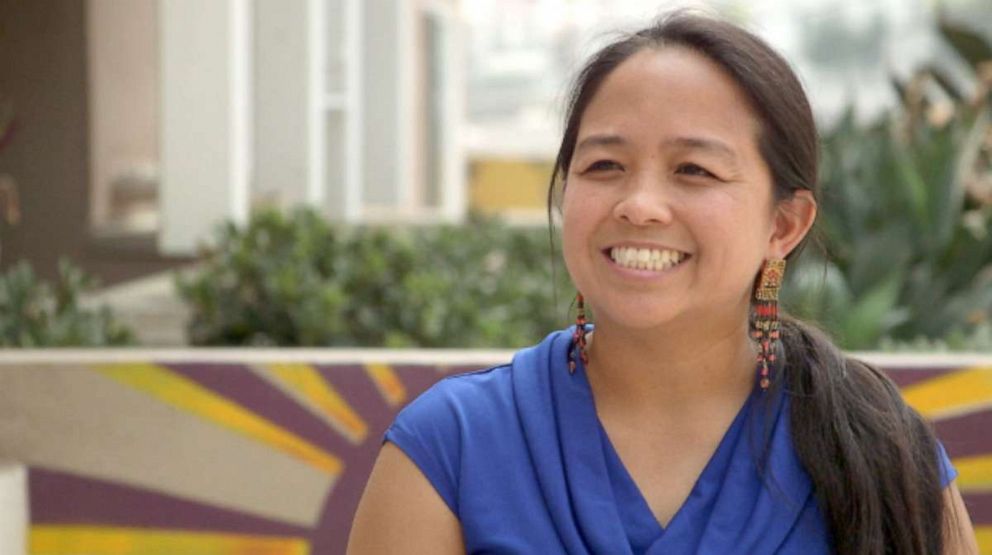
The nonprofit Pilipino Workers Center is based in Los Angeles, but it has been pivotal in supplying food, money and hope to members of the Filipino community around the country, from Hawaii to New Mexico to Florida. The organization has also helped families living with front-line health care workers in LA by providing them with housing so that they can safely wait for COVID-19 test results or recover from the virus without spreading it to others in their family.
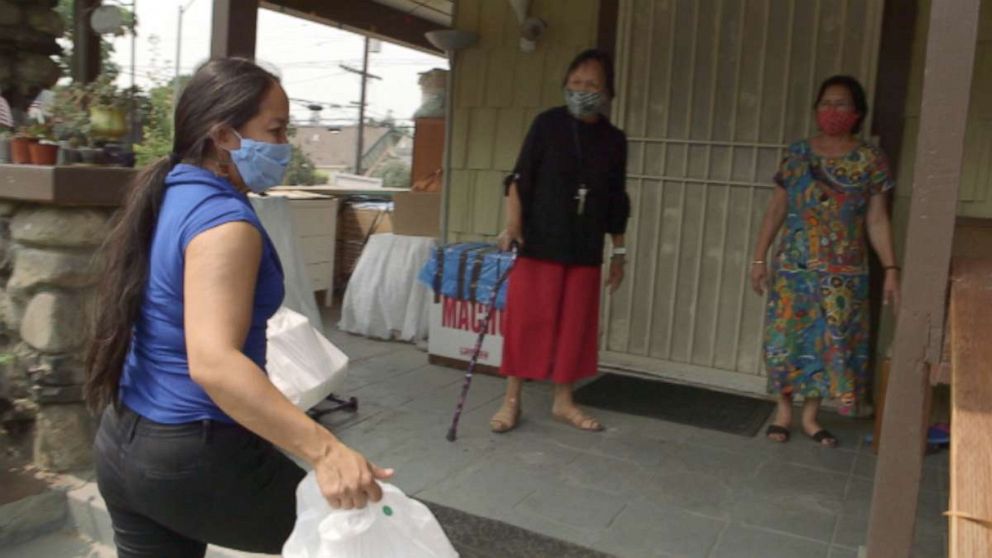
Still, the nonprofit can only do so much. Without dedicated groups in other cities around the country helping the Filipino American community or long-term, detailed data looking at the COVID-19 impact on the community, experts say it'll be hard to provide them with the support they need.
“There are different pathways to sort of becoming Asian American that all kind of get clumped together into a sort of monolithic experience," De Leon said. "It actually harms the way that we try to address population health."
When a wave of cases started hitting Florida this summer, nurse Rhea Mora, of Jacksonville, found herself thrust into the thick of the battle. It was not long before the 32-year-old mother of two was diagnosed with COVID-19. Her husband, Joe Mora, tested positive four days later.
Joe Mora's case quickly took a turn for the worse. He ended up at his wife's hospital as a patient, where he was hooked up to a ventilator for four days.
“When the coronavirus started and when she was first transferred into the COVID unit to work almost exclusively with COVID patients, everyone was panicking and afraid of how deadly the disease was," said Joe Mora. "They don't know how to treat it. They didn't know what to do with COVID, and people were dying."
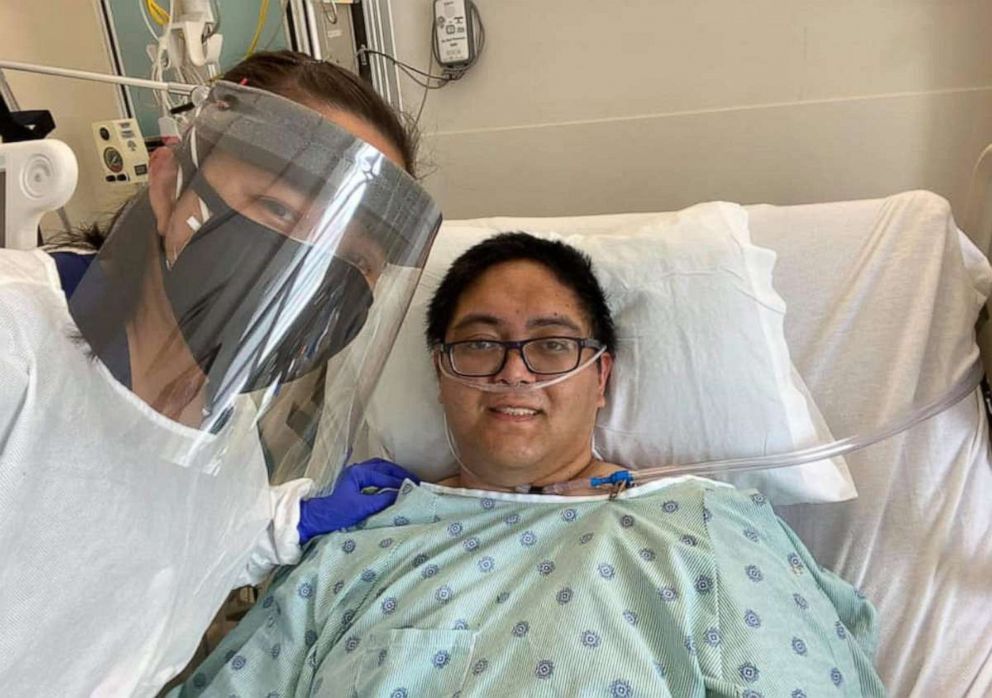
“We knew that as she started working here that there was a risk that we could become infected, that she could lose her life, that we could lose our lives,” he added.
After a grueling, nearly month-long battle with the virus, Joe Mora had recovered enough to reunite with his family. One of his favorite memories from that moment was his first kiss with Rhea Mora since recovering.
"It was the best reunion because I realized how important my family is and how much I should spend time with my family," said Rhea Mora.
"It was a special moment," said Joe Mora. "It was nice just to think, 'Wow, this is over. I'm healed now. You're healed now. We know there's nothing separating us.'"
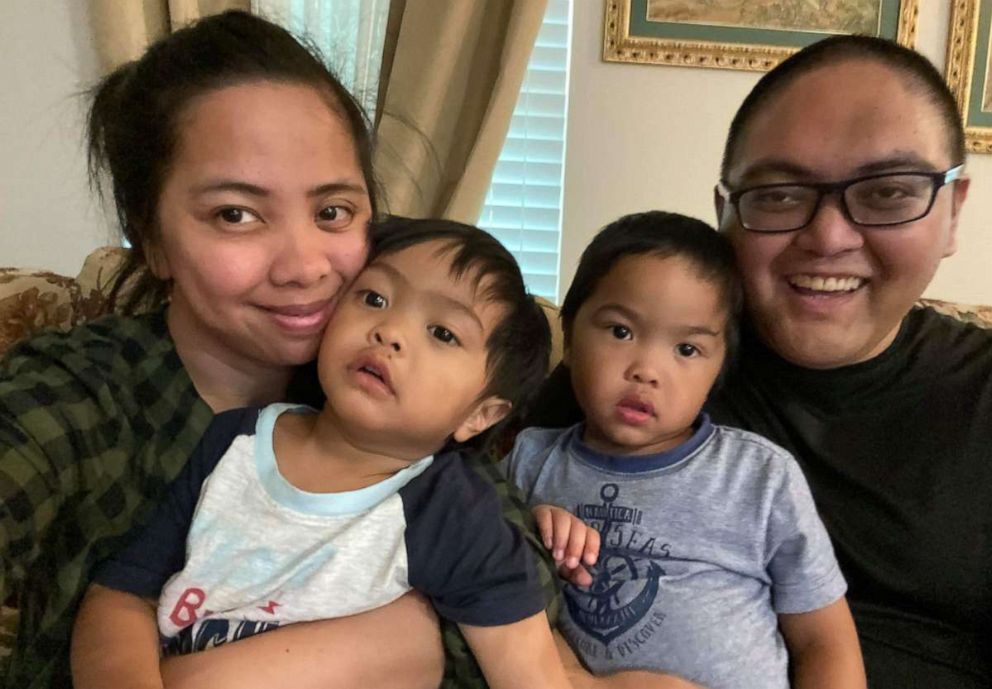
But the pain of separation is something Erwin Lambrento's friends and family are still grappling with. They hope his death, like so many Filipino American health care workers, will be remembered.
"He was known to be the DJ of Elmhurst Hospital," said Edward Bonilla, an EMT with the New York Fire Department in Queens.
Bonilla worked closely with Erwin Lambrento. After stabilizing patients and bringing them to Elmhurst Hospital's ER, they were oftentimes transferred into Erwin Lambrento's care.
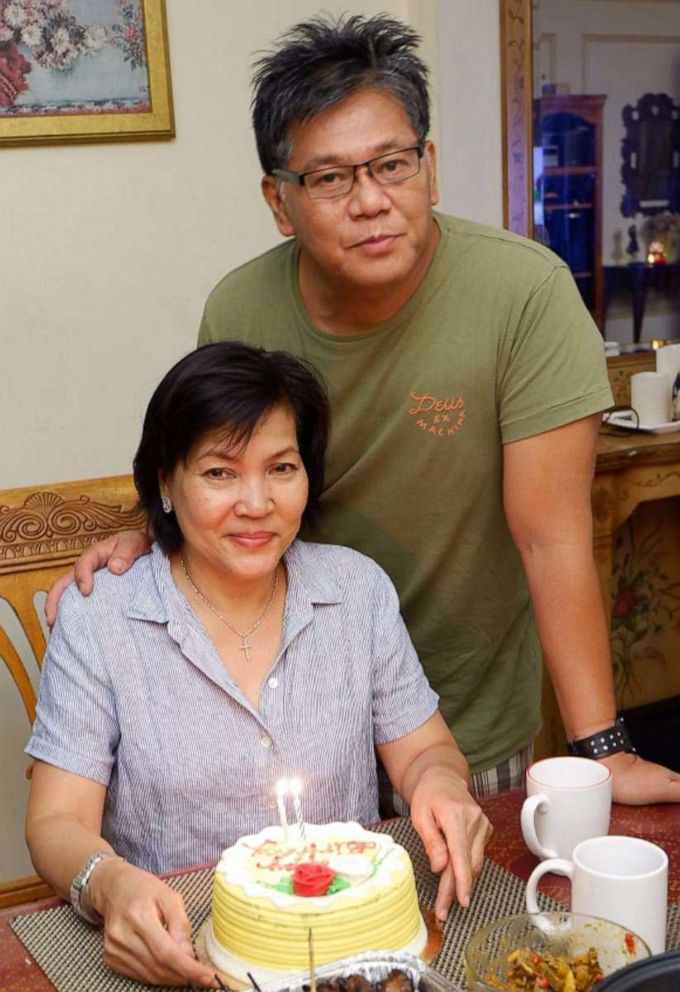
"I would always say that I gave him work every time he saw me," said Bonilla. "Erwin was the guy whom everyone looked up to when need be. He's always going to treat the patient the same way he treats everyone: [with] compassion."
In May, Bonilla organized a vigil outside the hospital, where hundreds of Lambrento's coworkers and loved ones gathered to pay tribute and flick on their emergency vehicles' sirens and lights.
"Dad was very hardworking and he came here and worked his way up to have a good life with us here," said Cara Lambrento.
She hopes people won't forget that human lives are attached to the rising COVID-19 death toll in the country.
"They are someone's father, someone's mother, someone's sister, someone's significant other," said Cara. "I don't want people to forget the humanity behind the statistics."




